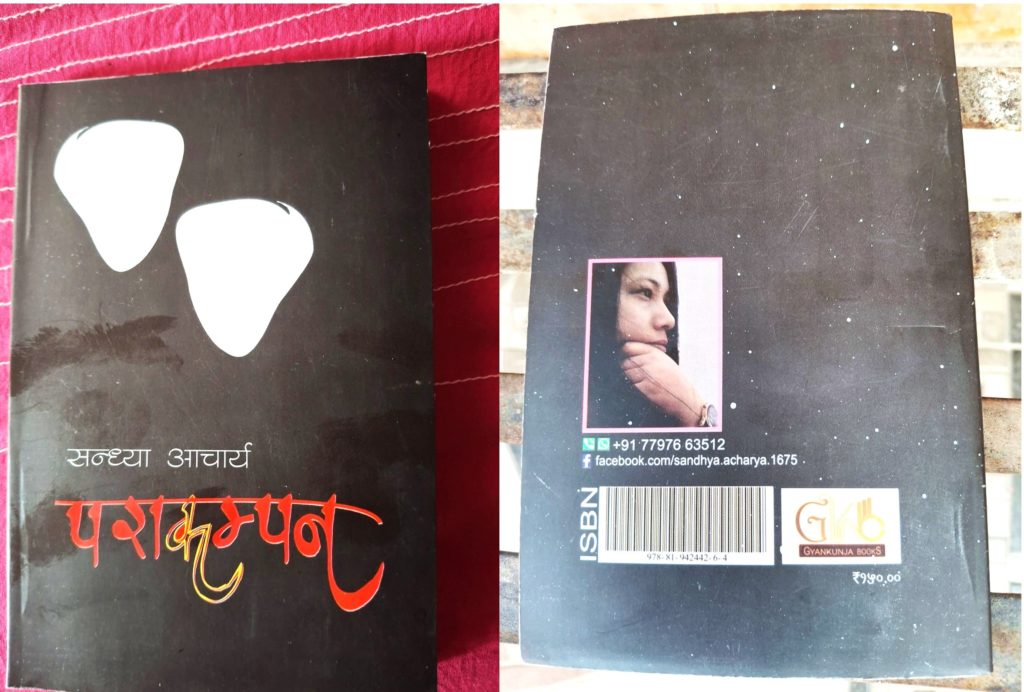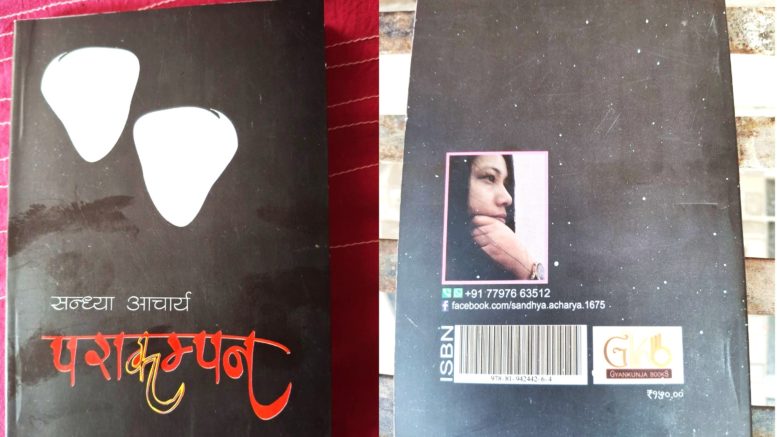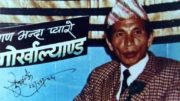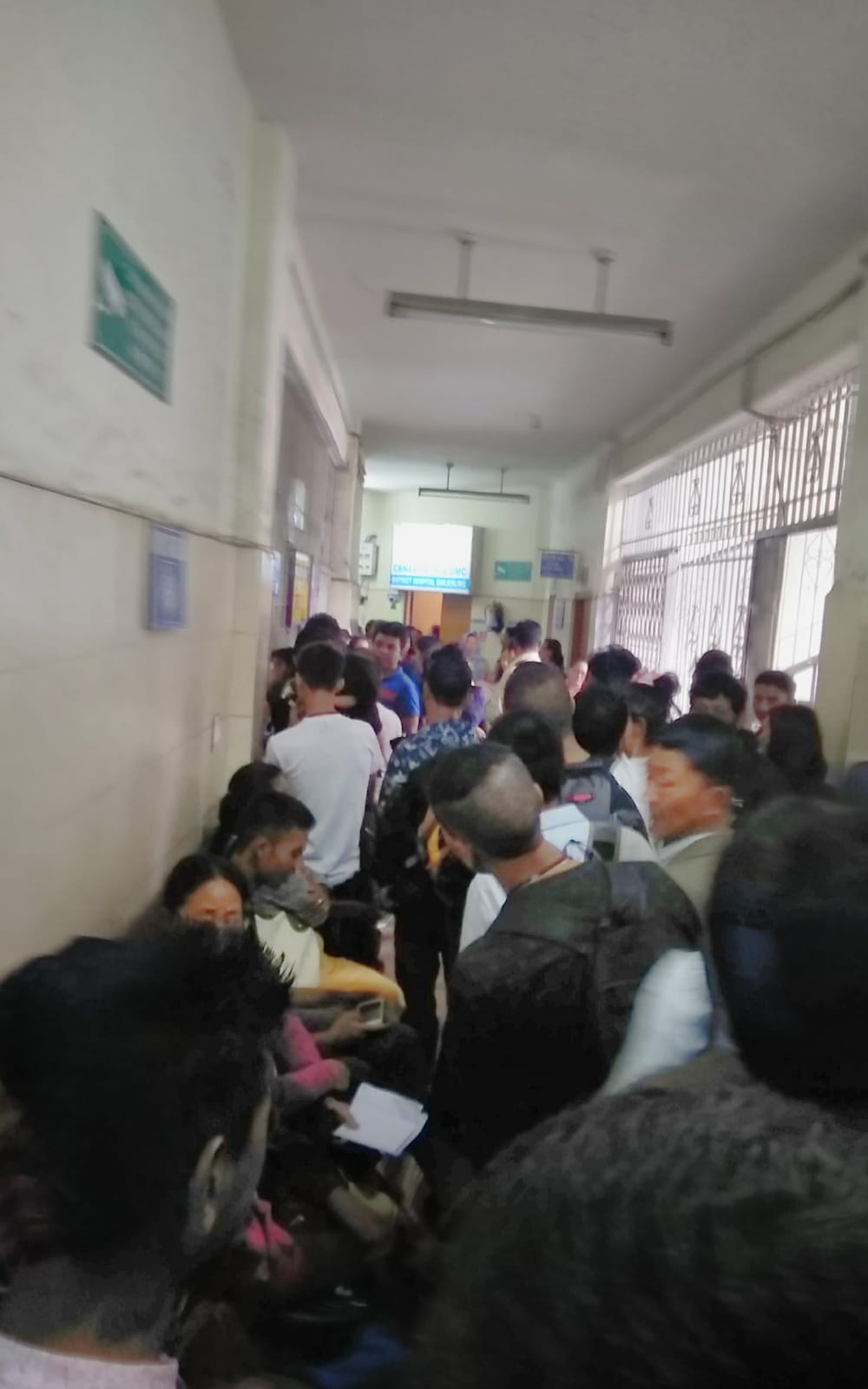PARAKAMPAN, translates to aftershocks
Dressed in black jeans trouser and black jacket, hiding eyes under dark goggles, bluetooth headphones in ears, he had come to pick me up at Kuwait International Airport. Our once frequent chats on Viber, Messenger, and Imo had faded to brief exchanges of ‘hi’ and ‘hello.’ But today, after several years, we were finally meeting in person, face to face.
“Shall we grab something to eat?” he asked after welcoming me at the arrival lounge.
“Not really, sorry. I’ll pass,” I replied politely.
“You should at least have a little something, mate,” he insisted.
I remained silent, ignoring his persistence. He was slightly displeased.
I was utterly exhausted from several hours of nonstop international travel, my first time flying abroad. Yet, what irritated me more than the long journey itself was the relentless inflight formalities from the air hostesses.
I found their constant concern and attentiveness more torturous than comforting. But that was their daily duty, so they kept checking on me. Struggling to keep my composure, I finally asked them politely not to disturb me again. They must have thought I was one of those ‘weird passengers’. They didn’t bother me again. What a relief!
Soon, we found ourselves inside the Burger King outlet just outside the arrival hall.
“Two Mega Meal Chicken Royale, please!” he ordered for both of us at the counter.
As we waited for our meals, I couldn’t help but wonder why spend so much on an overpriced meal inside the airport? Couldn’t we eat elsewhere.
Before long, our order arrived, neatly arranged on two trays.
I wasn’t really interested in eating there, but had little choice.
As he handed over 20 Dinars for the food, my mind instantly switched to conversion mode, ‘Wow! That’s our Rs. 12,500 and just for two meals! Super expensive!‘
I couldn’t help but think, ‘Lucky guy must have a good job in Kuwait.‘
For the next two years, he would be my guide, my guardian, my friend, and everything in between.
Our destination was Salmiya. I wanted to ask how long it would take to get there, but he was engrossed in his phone conversation, talking with the authority of a community leader rather than a foreign worker.
It wasn’t that he didn’t want to ask; he was simply too busy on his phone, like he was managing a society rather than just working abroad. I overheard him wishing someone a happy birthday, congratulating a couple on their anniversary, and engaging in similar small talk.
Turning to my own phone, I checked Google Maps. A sigh of relief escaped me, it would take just an hour more to reach Salmiya.
As we travelled in the airport taxi, he didn’t ask about home, our neighbours, or old friends. Nothing.
After his house was burned down during the 1986 political movement for Gorkhaland in Darjeeling, his parents had passed away the following year. Perhaps it was the overwhelming grief and exhaustion from losing their home. That was what the locals believed, too.
Along the way, he asked the driver to stop, and the taxi pulled over at a roadside shop. He stepped out, made a few purchases perhaps gifts, and once again, I saw him hand over 20 Dinars.
Eventually, we arrived in Salmiya, where he paid the taxi driver another 25 Dinars. I couldn’t help but wondered, was he careless, indifferent to his own hard-earned money? He had come all this way from India to work and make savings for the future, but he seemed so extravagant.
That evening, he took me to a wedding party and a birthday party hosted by some of his friends. It was obvious, he was the most spendthrift among them.
Later that night, he sighed and said, “Why should I keep saving money? What’s the point when I return to Darjeeling?”
***
Today marks my first day at my new job. We both work as cashiers at different counters in McDonald’s.
I soon learned that my salary equated to forty thousand Indian rupees a month. My mind drifted between this new reality and his situation, contemplating what it meant.
***
It’s been seventeen months since I arrived in Salmiya.
That night, on salary day, I nudged him and said, “I think we could finally afford to build a small house now, don’t you think so?”
He shuddered beside me, his voice filled with anxiety. He shot back a question, “Won’t there be another movement there?“
After all these months, it was the first time he had asked me anything about Darjeeling. Unfortunately, I had no answer.
I turned to the other side of the bed, pretending to sleep, but my mind was restless. Thoughts swirled around, he seemed afraid of using his savings to rebuild a house. Perhaps the haunting memories of his childhood home, set aflame by communist cadres who violently opposed the Gorkhaland movement, still lingered in his mind.
Yet, I kept pressing him about the need to save and rebuild. Every now and then, I brought this topic up, hoping to spark a conversation.
After several months, one day, our colleague Ramesh remarked, “He’s become quite thrifty lately keeping a tight grip on his spending, being more prudent.”
He was right. I, too, had noticed a shift in his habits. He was no longer wasteful.
I hoped he was saving more now, preparing to return to Darjeeling and build a new home. But deep down, I knew he still wasn’t fully convinced about the lasting peace in Darjeeling.
I am expecting, another day, he would ask me again, “Are you sure Sandhya, there won’t be another violent movement in our Darjeeling?”
***
This is a translation of Sandhya Acharya’s Nepali short stories titled ‘PARAKAMPAN’ by Ratan Thapa





![[Pic by Nand Poudel GJM (BT) faction commemorating Balidan Diwas at Sibchu]](https://thedarjeelingchronicle.com/wp-content/uploads/2019/02/Pic-by-Nand-Poudel-GJMBT-faction-commemorating-Balidan-Diwas-at-Sibchu-180x101.jpg)

Be the first to comment on "PARAKAMPAN – Aftershocks"